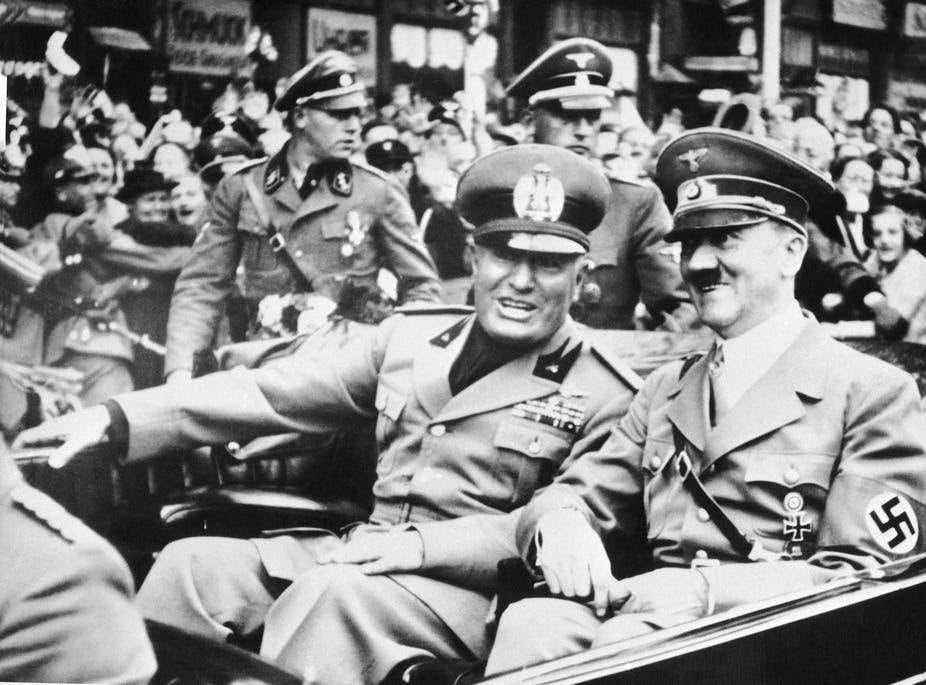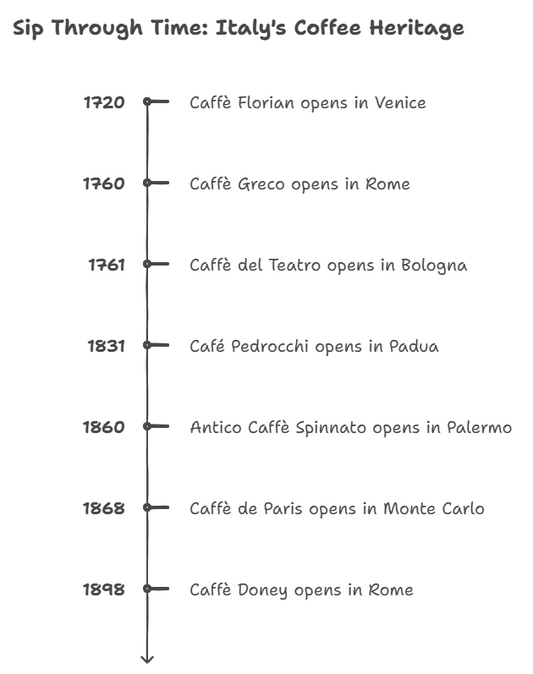The short answer to this question, Italy was obliged to do so under the Tripartite Agreement signed between Germany, Italy, and Japan in September 1940 that each signatory nation is obliged to support each other against any of their aggressors.
When Japan declared war on the United States and attacked Pearl Harbour on December 7th, 1941, and the United States subsequent declaration of war with Japan, both Germany and Italy declared war on the US on December 11th, 1941.
However, there are more than meets the eye.
Why Italy Choose Germany in WWII
We need to dive deeper to understand the geopolitics situation in Europe during the intervening years after World War I and before World War II. The world order was dictated by leaders of the victors of the First World War, namely Britain, France, and the United States who envision a new world order with the establishment of the League of Nations, the precursor to the current day United Nations.
The decisions and subsequent actions of these leaders have a direct and profound effect and consequences on its country populace which reverberates along the corridors of history from the twentieth century to the present day.
Since 1922, Italy was ruled by Benito Mussolini as its virtual fascist dictator. Mussolini who ascended to the premiership in Italy in the early 1920s took over an Italy was strife with internal turmoil and was in near bankruptcy with participation in the First World War.
He envisioned a new Roman Empire with Italy as the bastion of power across the Mediterranean. He wants Italy to ascend to the level of Great Powers like Britain and France.
Ultimately, Mussolini just wanted to be one the winning side in Geo-political intrigue in Europe after the First World War. Italy in the 1930s could be swayed to the side of
- Britain and France, the old imperial colonial powers or
- the ascending power of a new Germany under Adolf Hitler.
There are reasons for Mussolini or the Il Duce (the leader or the boss) as he liked to be known to align himself and Italy to the side of Germany, namely:
1. Ideological affinity
Germany and Italy were both leaning towards fascism. Their ideological affinity provided a common platform for their political agenda and foreign policies. Mussolini could relate to the Nazi militarism march to war for territorial expansion as he has had similarly seek territorial expansion via military campaigns in Libya and Ethiopia during his reign.
2. The master and the pupil – Relation between Hitler and Mussolini
Mussolini started a new fascist model in the 1920s which propel him to the seat of government in 1922. He was much admired by Adolf Hitler who adopted Mussolini’s tactics like having military hence men, known as blackguards in Italy, to the SA brown guards in Germany. When Mussolini succeeded in a bloodless coup in 1922 with the ‘March to Rome’, Hitler tried unsuccessfully to emulate that with an attempted albeit unsuccessful coup in Munich. Hitler even asked Mussolini for a signed photograph as a sign of admiration.
Both Hitler and Mussolini do not enjoy a cozy relationship. The Duce considers himself the master with Hitler as his pupil while Hitler considers him as a usurper and opportunist whose loyalty will waver depending on the circumstances.
In 1936, Hitler invited Mussolini to visit Germany and hosted him with a full parade displaying Germany’s military might. Mussolini realized that Hitler had turned the tables and was now the leader rather than a pupil.
A military and political alliance between the two countries cumulated in May 1939 with Germany the undisputed leader and Italy the follower. Mussolini henceforth surrendered Italy’s foreign policy to Germany and became a staunch ally of Nazi Germany.

Italian dictator Benito Mussolini and Nazi leader Adolf Hitler before attending a conference in Munich Germany. AP Photo/File
3. The disdain of the old British and French imperial order
As much as Mussolini tried to position Italy as a co-equal great power vis-à-vis Britain and France, he could not achieve the desired effect. Coupled with prior political grievances towards Britain and France, Mussolini ally with Hitler, in the hope of establishing a new order in Europe at the expense of Britain and France.
Italy entered World War I in 1915 and although Italy was with the winning side of the Allied powers against the Central Powers, she did not receive her perceived ‘spoils of war’, like the French and the British in the Treaty of Versailles. This led to widespread condemnation and disillusion of the then government and guarded animosity towards the British and the French. The Italians even coined the term ‘Vittoria Mutilata’ or mutilated victory to describe this event. Mussolini was further incensed with Britain during and after the Second Italo-Ethiopian War in 1935. He had sought tactic approval from France and Britain prior to the campaign only for Britain to impose sanctions on Italy after mustard gas was deployed during the war.
4. The fall of France in 1940
Although Italy was aligned with Germany since 1939, Mussolini did not commit troops or declare war on Britain or France. He only officially declared war on June 10th, 1940 when the fall of France was imminent. With the fall of France and the British evacuation at Dunkirk, Mussolini was firmly on the side of Germany, believing in German’s invincibility and the establishment of a new European order. Hence Italy needed to step up to prove itself as a worthy partner to enjoy the spoils of war with Germany.
5. Axis Tripartite Agreement in 1940
In September 1940, Italy, Germany, and Japan signed the Axis Tripartite Agreement, tying all three signatories to recognize each party’s sphere of influence and to assist each other if the countries were attacked by a hostile third country.
This Tripartite Agreement is often cited as the official reason for Germany and Italy declaring war on the United States with Japan. It accidentally solved one of Franklin Roosevelt (FDR), the US President’s biggest dilemma after the Pearl Harbour attack. It was a given for the US to go for a declaration of war on Japan, but the US was not attacked by Germany or Italy and hence there was no absolute cause for the US to declare war on them.
However, both Germany and Italy declared war on the US on December 11th, 1941, paving the way for the US to reply in kind. It was suggested that Hitler thought by declaring war on the United States would prompt Japan to similarly declare war on the Soviet Union whom Germany has invaded in early 1941 but Japan did not reciprocate in kind.

Signing ceremony for the Axis Powers Tripartite Pact, the deal that doomed Italy.
Source: https://nationalinterest.org/blog/buzz/meet-original-axis-evil-hitler-mussolini-and-tojo-145727
If you are interested in an alternate history, you can read our post on what if Italy did not join WW2.
In summary, Mussolini saw an emerging new European order and common fascist ideology established by Germany, who was victorious in the early war years and was an eager partner in the Axis Tripartite Pact, to declare war on the United States. Unfortunately, Mussolini doomed Italy to the losing side of World War 2.




